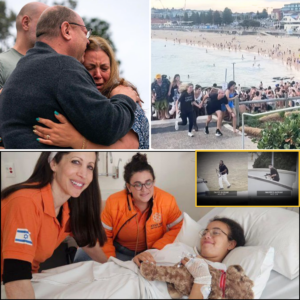The city of Charlotte, still raw from the brutal stabbing death of 23-year-old Ukrainian refugee Iryna Zarutska on a light rail train nearly a month ago, erupted in collective outrage this week after Mayor Vi Lyles delivered a statement that many viewed as a heartbreaking deflection from the victim’s suffering. In a televised address from City Hall on Wednesday evening, Lyles, seeking re-election for a fifth term, addressed the ongoing fallout from the August 22 attack, urging residents to temper their anger toward the suspect. “I don’t want to turn people struggling with mental health issues or the homeless into villains,” she said, her voice measured and earnest. “This tragedy highlights the deep cracks in our support systems – we must address root causes like untreated illness and housing instability, not just point fingers.”
The words, intended as a call for empathy and reform, landed like a gut punch on a grieving community. For Zarutska’s family, friends, and a growing chorus of advocates, the mayor’s framing felt like a betrayal – prioritizing the perpetrator’s narrative over the innocence of a young woman who fled war only to meet violence on American soil. “Who will fight for Iryna now?” demanded Stas Nikulytsia, Zarutska’s boyfriend, in a tear-streaked video posted to social media that has garnered over 500,000 views. “She came here for safety, worked two jobs to build a life, and now the leader of our city wants us to feel sorry for the monster who took her? Where’s the justice for the innocent?”
The backlash has been swift and multifaceted, transforming a local tragedy into a national flashpoint on issues of crime, mental health, immigration, and political accountability. Protests swelled outside City Hall on Thursday, with demonstrators – many waving Ukrainian flags and clutching sunflowers, symbols of Zarutska’s homeland – chanting “Justice for Iryna!” and “No More Excuses!” A petition demanding Lyles’ resignation has surged past 75,000 signatures on Change.org, while conservative commentators on cable news have branded her remarks “tone-deaf wokeness” that endangers public safety. Even within her own Democratic Party, whispers of primary challenges grow louder, despite her recent victory in the September 9 nomination race.
To understand the depth of this rift, one must rewind to that fateful evening on the Lynx Blue Line. Iryna Zarutska, a bright-eyed aspiring veterinarian who had resettled in Charlotte just three years prior, boarded the train at 7th Street Station after a exhausting double shift at Zepeddies Pizzeria. The 23-year-old, with her signature ponytail and flour-dusted apron, settled into a window seat, earbuds in, perhaps texting Stas about their plans for a quiet pizza night at home. Behind her sat Decarlos Brown Jr., a 34-year-old transient with a history of severe mental illness and petty crimes, including multiple arrests for assault and theft. Unprovoked, Brown – later ranting in custody about “government implants” controlling his mind – drew a pocket knife and unleashed seven frenzied stabs into Zarutska’s back, neck, and chest. Surveillance video, released by police last week, captures the horror in chilling clarity: her desperate twist away, the bloom of blood on her blouse, the chaos of screams as the train screeches to a halt at Woodlawn Station.
Zarutska, pronounced dead at Atrium Health Carolinas Medical Center just 20 minutes later, became an instant symbol of vulnerability in America’s urban underbelly. Her story – escaping Russian missiles in Kyiv, smuggling across borders, and rebuilding in the Queen City with dreams of a farm and family – resonated far beyond North Carolina. Vigils lit up rail stations nationwide, from New York’s Penn Station to Chicago’s L platforms, with refugees sharing tales of their own fears on public transit. In Charlotte, her uncle Mykola, who had sponsored the family’s asylum, collapsed in sobs at a memorial service last Sunday, clutching a photo of Iryna grinning beside a rescue puppy. “She called America her second chance,” he said through an interpreter. “Now it’s a nightmare. And the mayor wants compassion for the killer? What about us?”
Lyles’ comments, delivered amid heightened scrutiny of the city’s transit safety, were meant to pivot the conversation toward systemic solutions. Charlotte’s light rail, part of the sprawling Charlotte Area Transit System (CATS), has faced mounting complaints of vagrancy and disorder, with ridership dipping 15% since the stabbing. In her address, the 72-year-old mayor, a fixture in local politics since 2017, outlined plans for expanded mental health outreach on trains and $50 million in new funding for homeless shelters. “Decarlos Brown is a product of our failures,” she continued, referencing his documented schizophrenia and 13 prior brushes with the law, often ending in releases due to overcrowded jails or lack of psychiatric beds. “We can’t heal this city by demonizing the broken among us. Iryna’s death demands we fix what’s broken in all of us.”
But to critics, this rang hollow – a politician’s sleight of hand that humanized the accused at the expense of the victim. Brown, held without bail on first-degree murder and a federal charge of causing death on mass transit, remains a polarizing figure. His sister Tracey has publicly pleaded for understanding, describing him as “a gentle soul twisted by demons no medicine could tame.” Yet Zarutska’s loved ones see no such nuance. “He chose to stab her seven times,” Stas told reporters outside the Mecklenburg County Courthouse on Friday, his voice rising with unspent rage. “Mental health doesn’t make you a killer – choices do. Iryna had no choices left. She was innocent, working for a future we planned together. That unsent text on her phone? ‘I can’t wait to build our future.’ Now what?”
The outrage has amplified calls for accountability across Charlotte’s diverse tapestry. At a packed community forum in NoDa – the artsy neighborhood where Zarutska lived with her uncle’s family – Ukrainian expats mingled with Black pastors and Latino transit workers, united in frustration. “As a Black man who’s seen too many of our own turned into villains for less,” said Reverend Jamal Hayes, the off-duty nurse who tried to save Zarutska on the train, “I get the mayor’s point on stigma. But this? This feels like erasure. Iryna’s blood is on that floor, and we’re talking about the man’s therapy sessions?” Hayes, who pressed his shirt against her wounds as she gasped her last breaths, has become an unlikely spokesman, launching a nonprofit for transit safety training that has raised $200,000 in donations.
Immigrant rights groups, while praising Lyles’ long record on refugee support – she helped secure $10 million in aid for Ukrainian arrivals post-2022 invasion – worry her words could chill newcomers. “Iryna represents thousands like her,” said Sofia Ramirez, a coworker at the pizzeria who organized a sunflower garden memorial at the site. “Young, hopeful, grinding through ESL classes and night shifts. If the mayor sides with the attacker, how do we tell the next girl it’s safe to ride the Blue Line alone?” Ramirez, herself a Venezuelan asylum seeker, recounted how Zarutska mentored her: “She’d say, ‘Sofia, America’s tough, but it’s ours now. We build it brick by brick.’ Who’s building justice for her bricks?”
Politically, the storm threatens Lyles’ re-election bid in November’s general election against Republican challenger Tim Newhard, a former cop hammering “law and order” themes. Despite clinching the Democratic primary by a slim 52% margin – buoyed by loyalists in majority-Black precincts – polls show her approval dipping to 41%, per a WRAL News survey released Friday. National Democrats, eyeing North Carolina’s swing-state status, have stayed mum, but whispers from Washington suggest quiet damage control. City Councilman Tariq Bokhari, a Lyles ally, called the statement a “misstep in timing,” adding, “The mayor’s heart is in reform, but Iryna’s family needed solidarity first. We’ve got to course-correct.”
Zarutska’s family, fractured by grief across oceans, echoes this plea. From Kyiv, her father Stanislav Zarutskyi – a former factory worker whose plant was shelled in the war – released a video message via the Ukrainian Embassy: “Vi Lyles speaks of villains, but my daughter was no story – she was real, alive, loving. Who villains the homeless when they kill? We demand trial, truth, and change that honors her, not excuses him.” Her mother Anna, remaining in Charlotte with siblings Valeriia and Bohdan, has withdrawn into silence, save for nightly visits to the rail station where it happened, laying fresh flowers at the spot marked by a chalk outline now faded by rain.
As Charlotte grapples, broader questions loom: Can a city mourn without mercy? In the suspect’s shadow, Brown’s fractured life – bounced between shelters, ER psych holds, and street corners – underscores America’s mental health crisis, with 1 in 5 adults affected and transit hubs as unwitting battlegrounds. Yet Zarutska’s advocates argue for balance: compassion yes, but consequences first. The GoFundMe for her memorial farmstead, now topping $300,000, channels funds into victim advocacy, partnering with groups like the National Network to End Domestic Violence for transit alerts apps.
In the end, Lyles’ words, though rooted in policy wonkery, have crystallized a deeper wound: the tension between understanding evil’s origins and demanding its reckoning. For Stas, poring over Iryna’s journal filled with farm sketches and love notes, the fight is personal. “She escaped bombs for this,” he said, eyes fixed on the horizon where Blue Ridge peaks pierce the sky. “I’ll ride that train every day until it’s safe, until her future is ours. And if the mayor won’t lead that charge, we will. For Iryna – innocent, unbreakable, forever.”
As sunsets gild the tracks, Charlotte waits. Will outrage forge reform, or fracture further? One thing’s clear: Iryna Zarutska’s light, dimmed too soon, now illuminates the shadows we ignore at our peril. Her justice? It’s in the hands of a community rising, demanding not just words, but walls against the void – for the next dreamer boarding alone.





